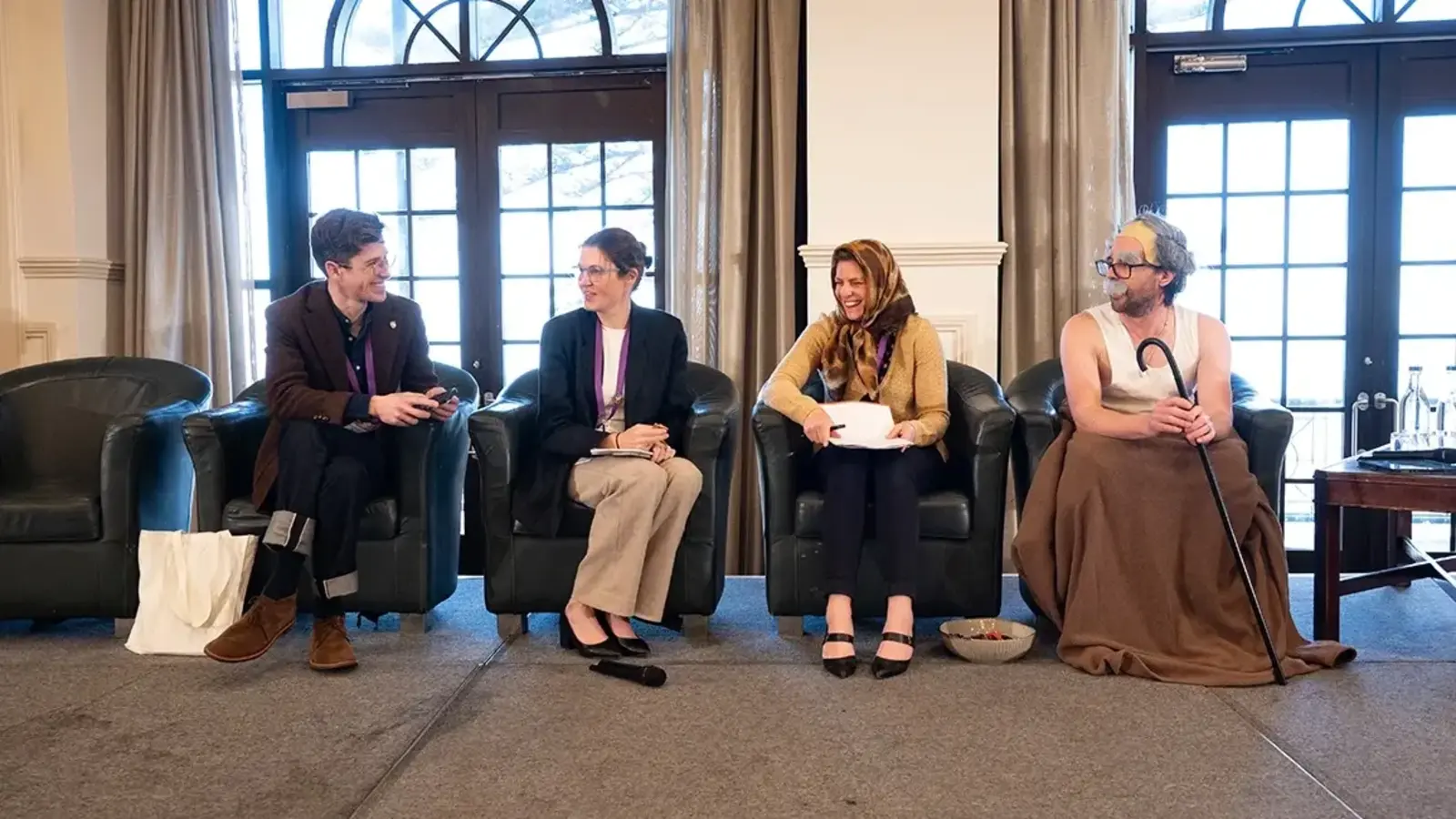
The CTN 2025 great debate saw platform trials championed as efficient and modern, but delegates ultimately backed a balanced approach with traditional randomised controlled trials.
At the 2025 CTN Workshop in Glenelg, SA, a packed room settled in for the highly anticipated CTN great debate as co-chairs Dr Belinda Phillips (Monash Health) and Professor Andrew Davidson (Royal Children’s Hospital, Melbourne) put a bold proposition to the floor: “All trial questions within the CTN should be answered within a platform trial.” A quick show of hands set the stakes, with very few in favour at the outset.
Affirmative opener Dr Benjamin Moran (Gosford Hospital) likened traditional randomised controlled trials (RCTs) to rotary phones, slow and inefficient, before a quick outfit change into a Rubik’s Cube suit to symbolise the 21st century. He argued that adaptive platform trials are the “mobile era” of research: faster, more efficient, and better at translating evidence into practice. Citing REMAP-CAP, he pointed to rapid uptake of effective therapies, the ability to stop harmful ones early, and parallel evaluation of multiple interventions. Keynote statistician, Professor Kate Lee (Royal Children's Hospital, Melbourne) mixed humour with a strong defence of platform trials. Opening with chocolate bribes, she argued that complexity can be overcome through training and clearer protocols. Efficiency, interaction analyses, and relevance to perioperative medicine were emphasised.
On the negative side, A/Prof Lachlan Miles (Austin Health) warned that platform trials risk becoming “statistical start-ups,” expensive to launch, daunting to read, and potentially inaccessible to busy clinicians and regulators accustomed to traditional RCTs. He questioned suitability across perioperative medicine’s diverse populations and endpoints, and highlighted governance and funding complexity. Keynote speaker, Dr Lisa Higgins (Monash University) stressed equity and practicality: not every question can or should wait for a platform; some need simpler designs to deliver timely answers.
The debate blended sharp wit and facts before moving to an expert panel Q&A. Topics included Bayesian stopping rules and expected sample sizes, aligning endpoints for comparability and cost-effectiveness, inclusion of paediatrics and smaller populations, the challenges of cluster domains, international governance, site funding models, and the impact on research-coordinator workload (front-loaded effort versus efficiency once multiple domains run concurrently).
A closing vote showed the affirmative camp had grown, but not enough to sway the room. The negative team carried the day, with delegates endorsing a balanced path: pursue platform trials where they fit, while continuing high-quality traditional RCTs.
Explore more highlights from the 2025 CTN workshop in our workshop wrap-up.
Banner image: (L–R) A/Prof Lachlan Miles, Dr Lisa Higgins, Professor Kate Lee, and Dr Benjamin Moran.
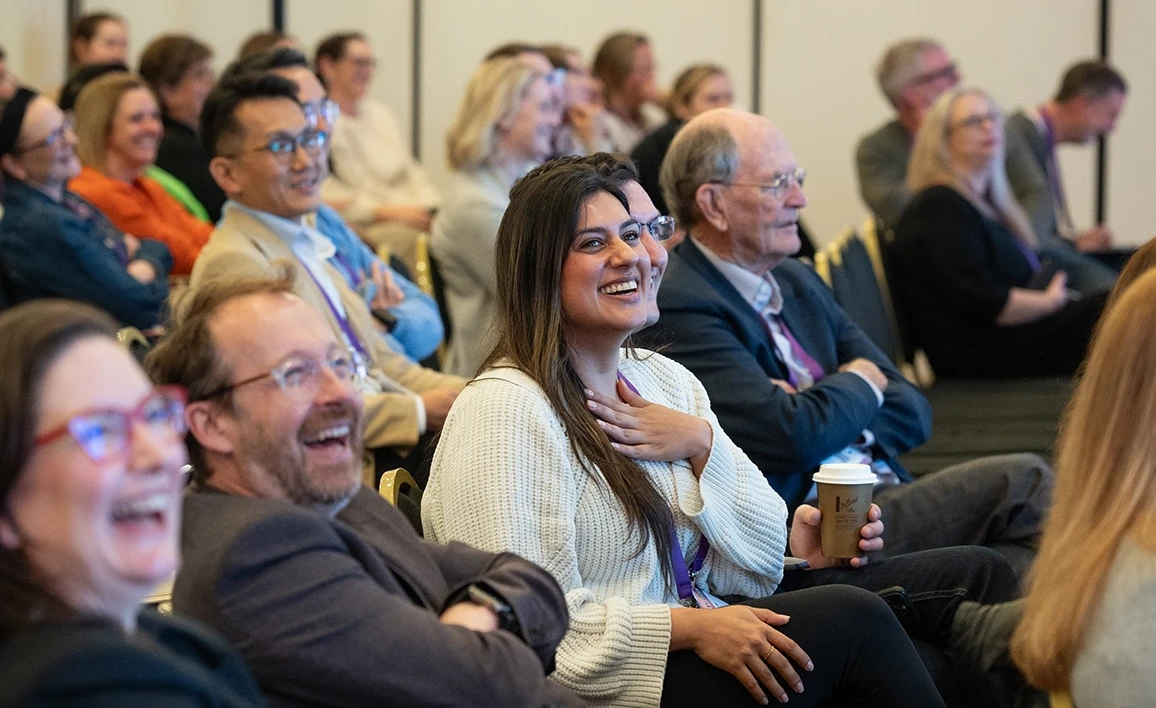
The audience at the 2025 great debate session
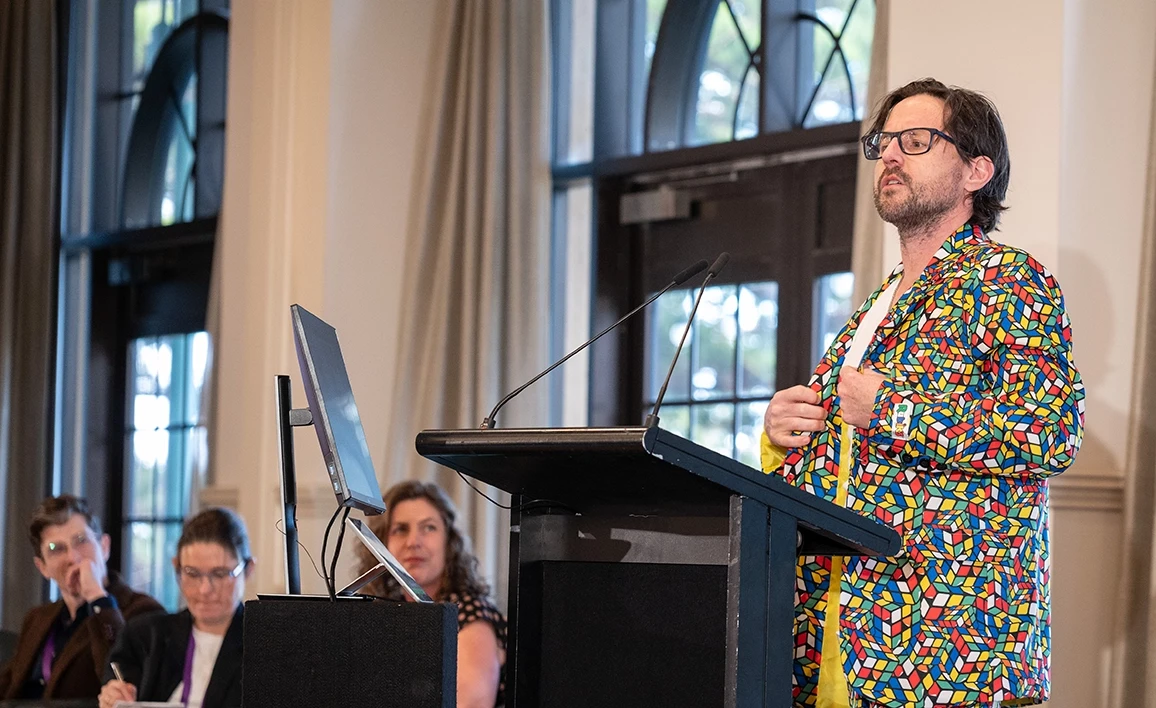
Affirmative speaker Dr Benjamin Moran (Gosford Hospital)
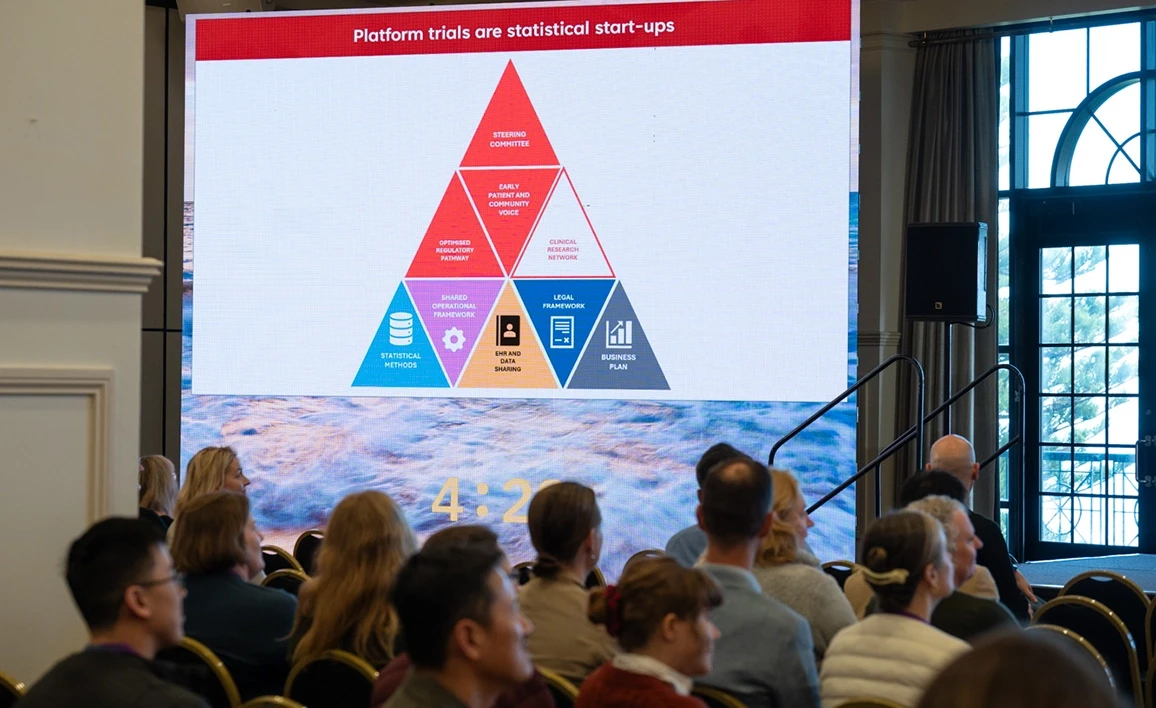
Presentation slide framing platform trials as complex statistical start-ups
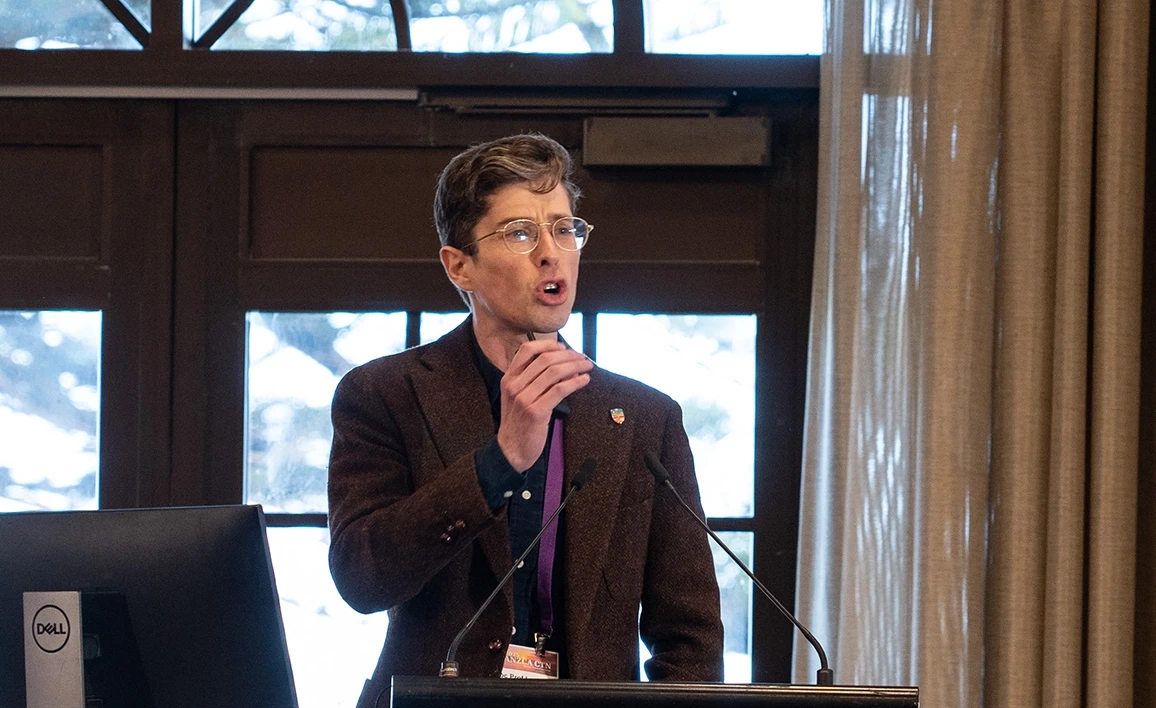
Opposing speaker, A/Prof Lachlan Miles (Austin Health, Vic)
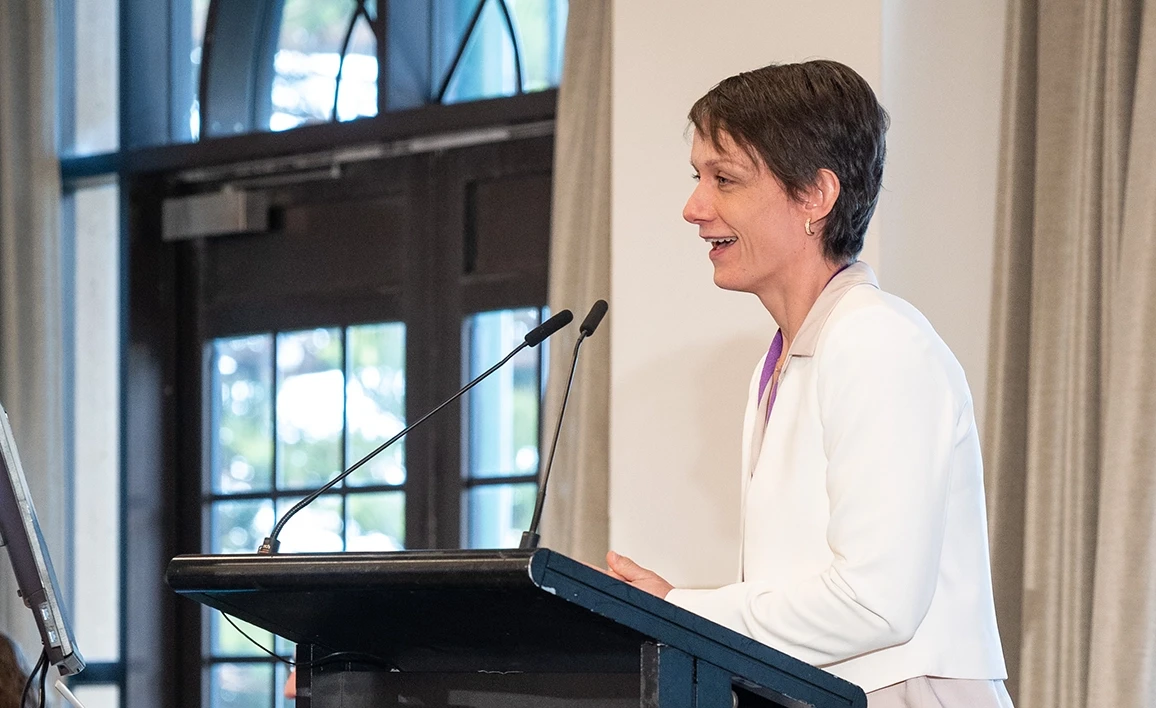
Debate moderator, Dr Belinda Phillips (Monash Health, Vic)
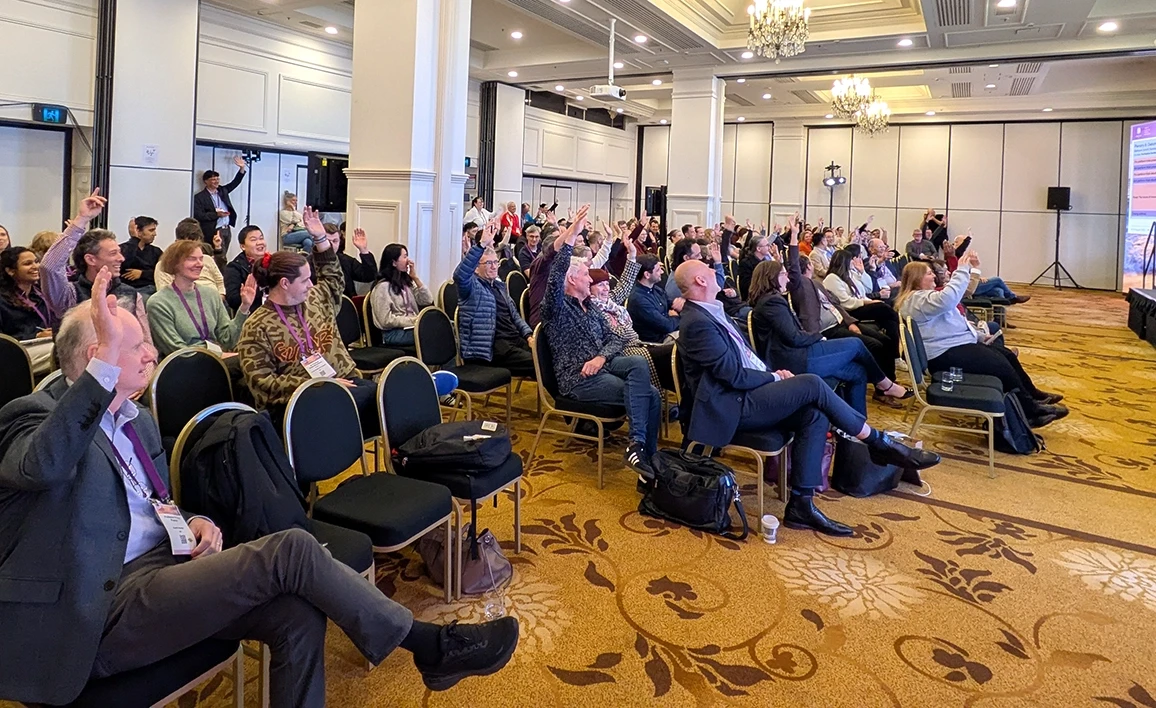.webp?language=en)
Audience voting in favour of traditional RCTs.



